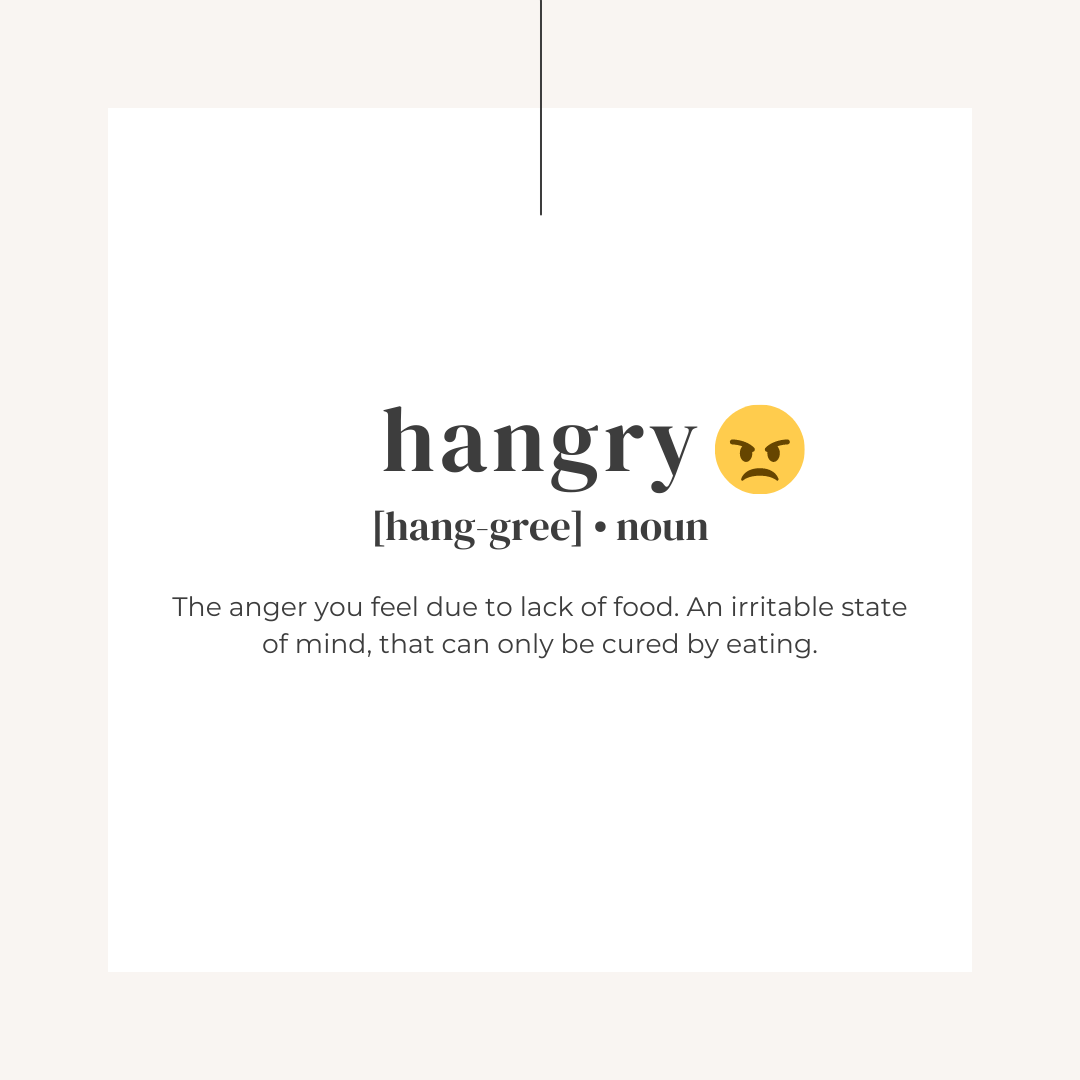Many people are familiar with the feeling of being angry and irritable when hungry. This feeling has more recently been termed ‘hangry’ and has become a joke amongst friends and loved ones. We often blame our outburst and lack of patience around food time on being hangry. It’s not fun being the one that is hangry nor being on the receiving end of someone who is hangry.
New research has looked at whether there is evidence that everyday levels of hunger are associated with negative emotionality and supports the notion of being “hangry.”
This study involved 64 people, an average age of 29.9 years, 81.3% women and from Austria, Germany and Switzerland.
Participants were asked to complete a daily survey five times a day for 21 days assessing hunger, irritability and anger. Additionally, pleasure and arousal were assessed along with dietary behaviour and eating motivation. A reminder to complete the questionnaire was sent at 3 fixed time points; 8am, 12pm and 6pm. Additionally, two random notifications were sent between 9am – 11am and 1pm-5pm.
Relevant to the outcome was that:
- 58% of participants usually had breakfast.
- 78% of participants usually had lunch.
- 84% of participants usually had dinner.
- 48% of participants snacked between main meals.
- 9% of participants got up at night to eat something.
Results of the study showed levels of reported hunger were associated with feelings of anger and irritability and lower pleasure. These results were found independent of participant gender, age, BMI, dietary behaviours and trait anger. No connection between hangry and arousal was found.
Whilst this is a relatively small study, it still tells us that there is some evidence to support that hangry is a real phenomenon. Accordingly, if you want to change how you feel during the day, perhaps hone further into your eating patterns and appetite.
How to overcome being Hangry
If you are the type of experience being hangry and its something you’d like to work on here are some tips:
- Keep a food diary for around 7 days to see when you get hungry and how this impacts your emotions, this will give you information to work with to make changes.
- If you usually skip breakfast and the wait for lunch causes you to become hangry then try having even a small breakfast such as a protein ball, boiled egg or piece of toast with avocado or a small snack at 9am-10am. This is especially if you exercise in the AM.
- If you have breakfast but still get hangry and don’t want a snack, make sure your breakfast contains at least 20g of protein as this will greatly help with satiety. Ways to boost protein = using a protein powder in smoothies or oats, adding boiled eggs, cottage cheese or lean turkey to avocado toast or as a vego version scrambling tofu and serving on toast.
- Pack easy to consume snacks in your bag in case meals are delayed for eg; raw nuts/seeds, individual packets of roasted chickpeas, packets roasted seaweed, bliss balls / protein balls.
- Choose fibre rich complex carbs as these will help to slow the release of sugar in the bloodstream and help to stabilise appetite and blood sugar. Good options include; oat bran, sweet potato, rye bread, freekeh, barley, legumes, pears and buckwheat.
- Avoid eating refined sugar as snacks especially on its own. This can spike blood sugar and can lead to high appetite levels. If you enjoy a sugary snack in the afternoon and are not prepared to give this up, try adding a handful of raw nuts/seeds, boiled egg or piece of cheese.
